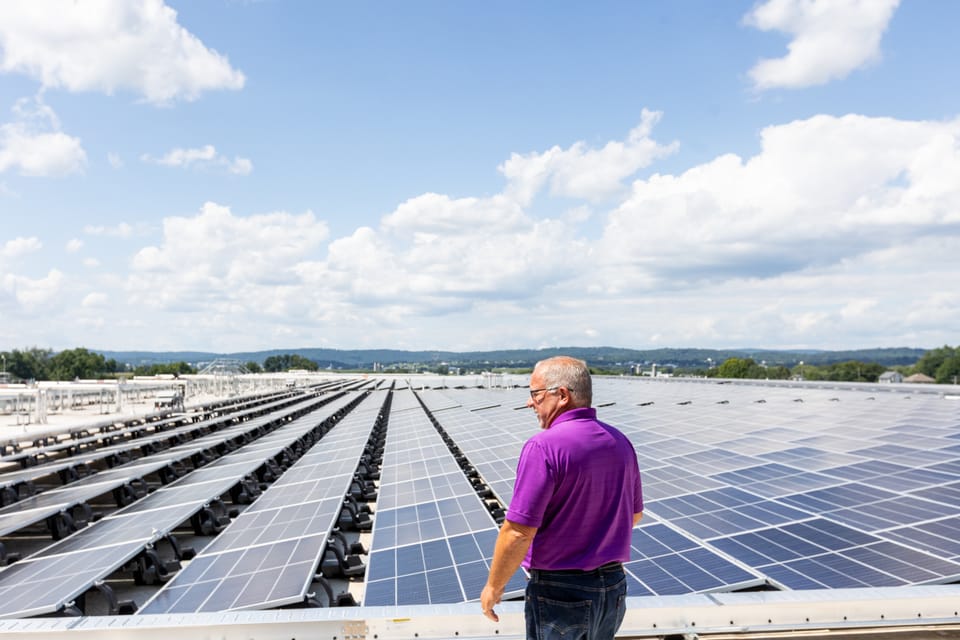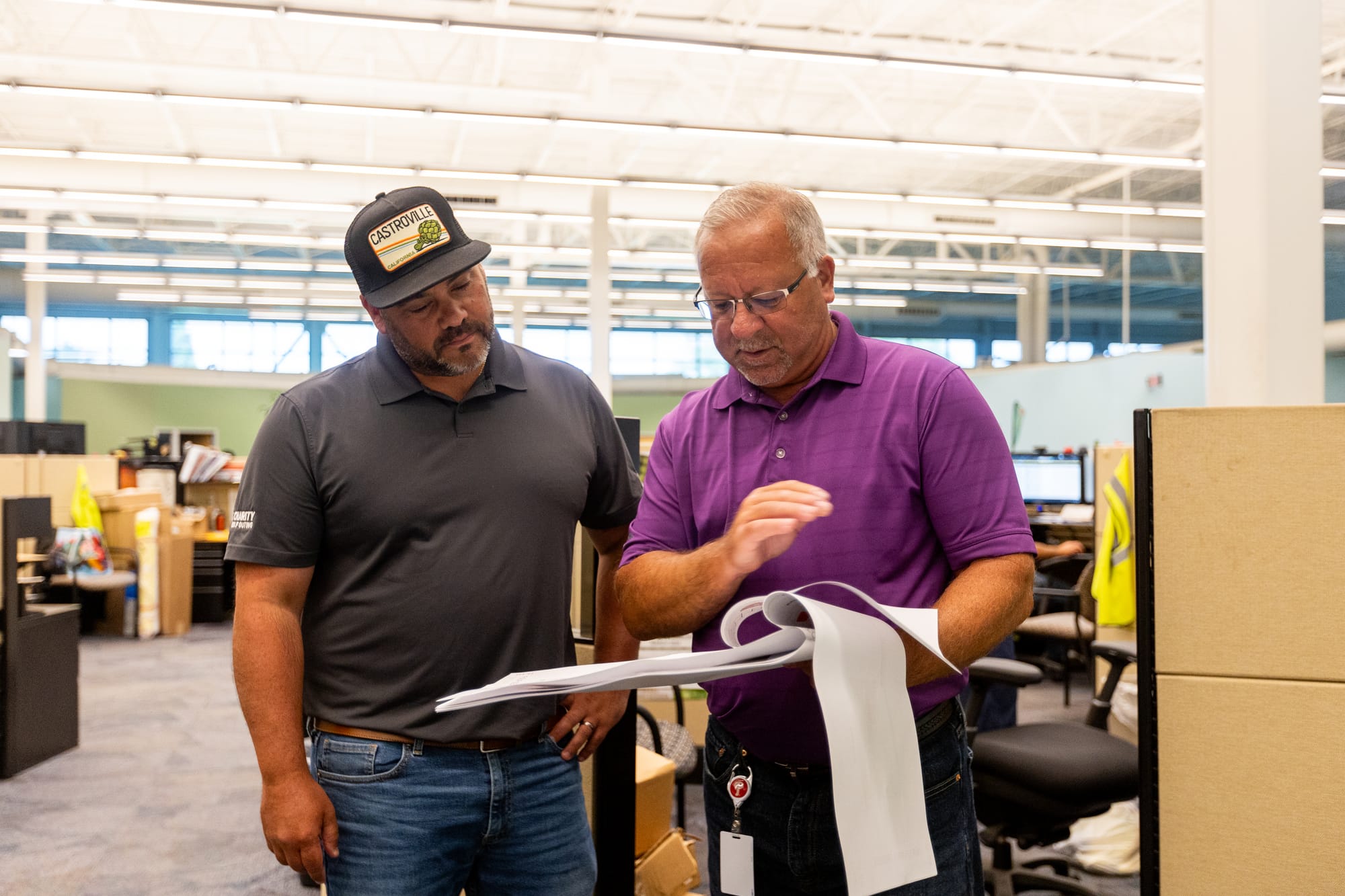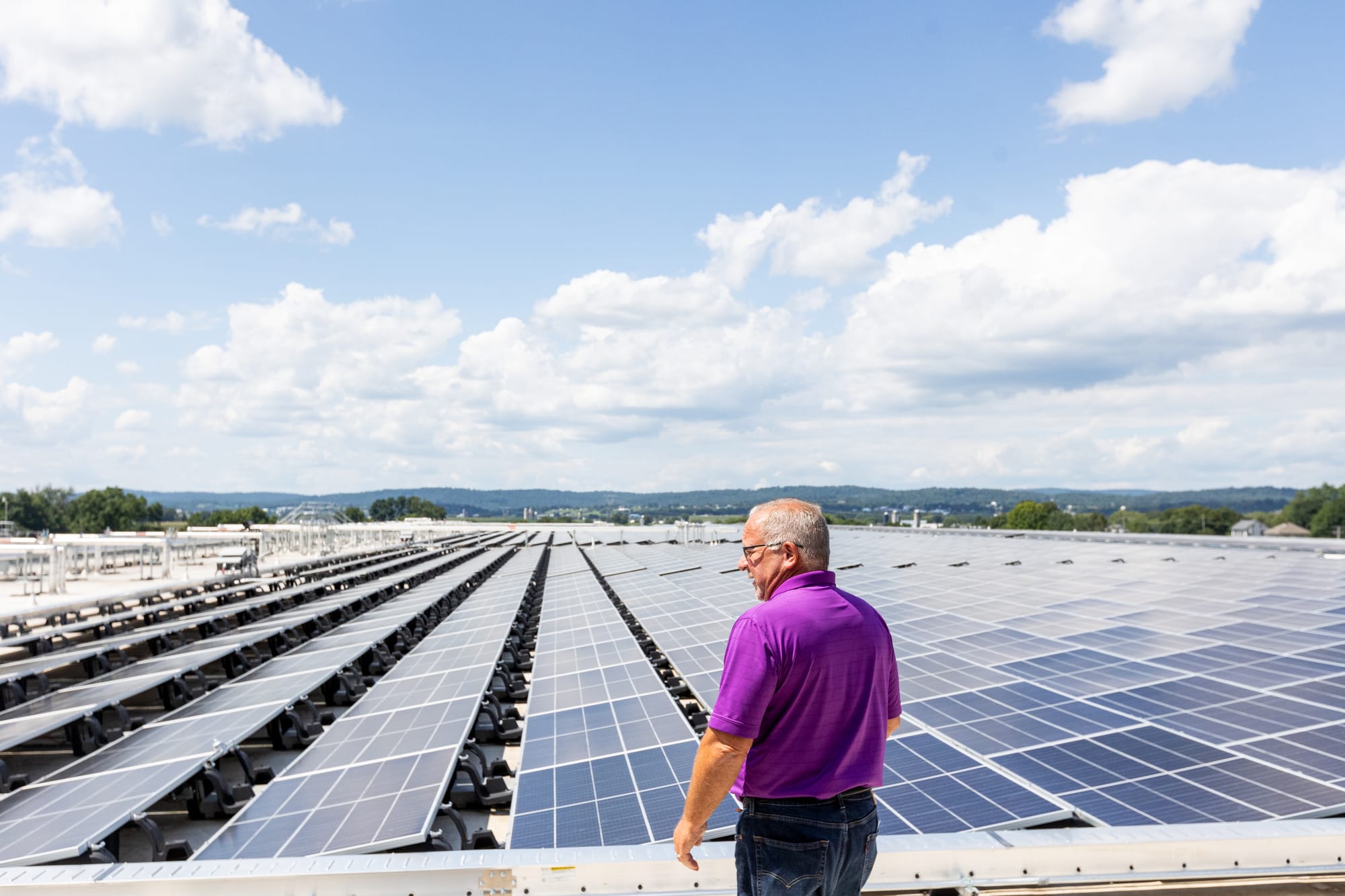Tax credits helped this rural company save $1M. Others could, too.

Hey Neighbor,
Federal energy tax credits might sound like a line on a budget sheet, but for rural business owners, they’ve meant the difference between scraping by and scaling up. These credits help cover the upfront costs of clean energy projects like solar, making it possible for family farms, small-town manufacturers, and local distributors to lower their energy bills and create better jobs.
In Ephrata, Pennsylvania, one rural produce company used those tools to save over $1 million and strengthen the food supply chain for the entire region. At the heart of that effort is Randy Groff, who helps keep the lights on and the coolers running at Four Seasons Produce, a company that delivers fresh food across the Northeast. He knows every dollar — and every kilowatt — counts.
Groff has spent nearly three decades at Four Seasons, a family-owned fruit and veggie distributor that began at a farmers market and now employs 900 people — a major employer for a town of 14,000 an hour and a half outside of Philadelphia. He started out as a truck driver with the company. By 2010, he had become their Director of Facilities and Energy.

“Our journey started with, ‘We need to cut costs,’” Groff said. “It didn’t really start as ‘being sustainable,’ but it turned into a sustainable practice, because we’ve been doing it for so long.”
They installed a 1.3-megawatt solar array in 2018, using a 26% federal investment tax credit. A second 1.7-megawatt array followed, this time backed by IRA-era tax credits and depreciation at 37% — a policy that lets businesses write off a big chunk of project costs right away instead of over many years. Together, those incentives saved Four Seasons over $1 million. “Between the tax credit and depreciation — plus a utility rebate — it became a no-brainer,” Groff said.
Video produced by the Lancaster-based Feliz Productions.
During peak sunlight, Four Seasons’ warehouse runs entirely on solar power. “It’s exciting to see that graph hit zero,” Groff said. “For six hours, we’re totally off the grid.”
Groff, a former electrician who loves digging into data, is already exploring the next step: thermal storage to capture excess solar and use it at night. It’s just one more way this rural distributor is keeping produce fresh, energy costs down, and the supply chain strong.
“You have to sell a lot to make a lot,” he said. “So energy savings really matter.”
These upgrades didn’t just cut costs. They helped Four Seasons become the first refrigerated warehouse in the country to earn an Energy Star — and laid the groundwork for a future where rural businesses lead the way in efficiency and innovation.
We’re proud to share Randy’s story. His work is one example of how rural businesses across the country are leveraging tax credits to cut energy costs, create jobs, and spur new private sector investments. Here are just a few more examples of rural tax credit innovators:
- Indiana farmer Kevin Smith used a 40% federal tax credit, along with a $250,000 REAP grant, to install a solar array that now powers his farm’s grain elevator, cutting energy costs by an estimated $30,000 per year.
- Sandra Kwak and 8th Fire Akiing Solar are building a microgrid on the White Earth Reservation using a 40% direct-pay tax credit in rural Minnesota. The $4M project and a $1.6M loan are now at risk, threatening jobs, energy resilience, and emergency preparedness for a low-income Native community.
- In rural Arizona, Anna May Cory used a $32,000 REAP grant and $23,000 in tax credits to install solar at her 27-room inn, cutting annual energy bills by over $10,000 and turning a long-held sustainability dream into a reality.
- Adam Schaller, a third generation die cast manufacturer, used a USDA REAP grant and federal solar tax credits to install two solar arrays at his business in Baroda, Michigan, saving $70,000 annually, hiring three new employees, and inspiring other small businesses in town to go solar too.
Our call today is to protect rural innovation, and protect energy tax credits. In small towns across the US, tax credits are helping family farms, small businesses, and Native communities cut costs and build for the future. These aren’t handouts, they’re smart investments that reflect our values: self-reliance and keeping our word.
If you know someone in a rural community who’s ready to speak up about what this policy means for them, our lines are always open.
Onward,
Resource Rural

